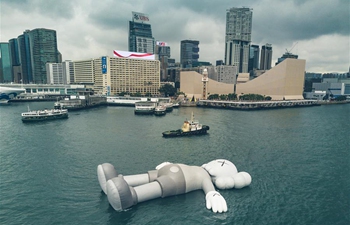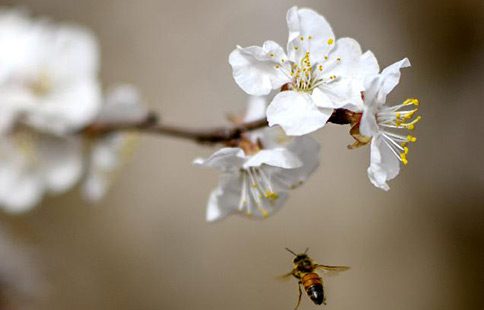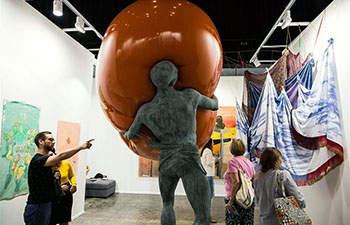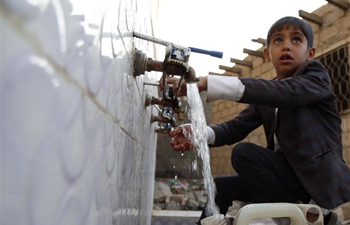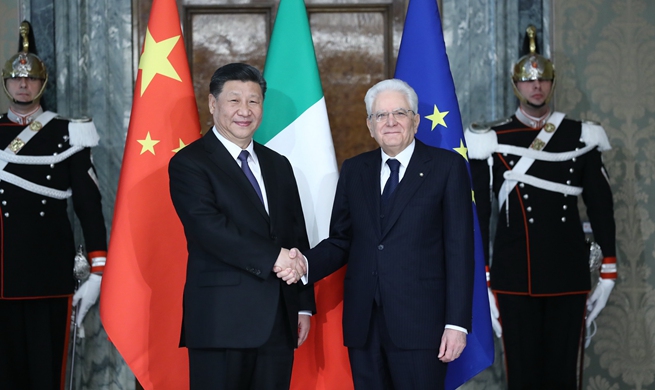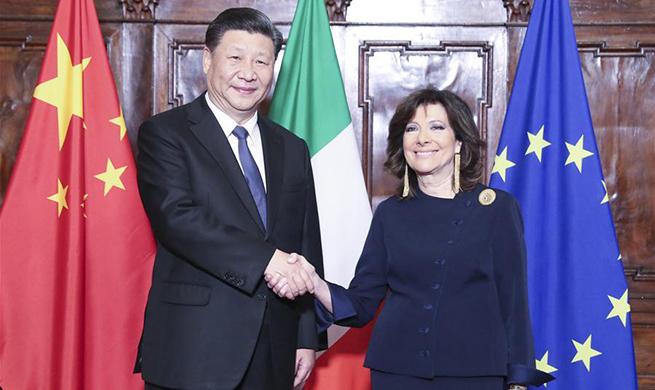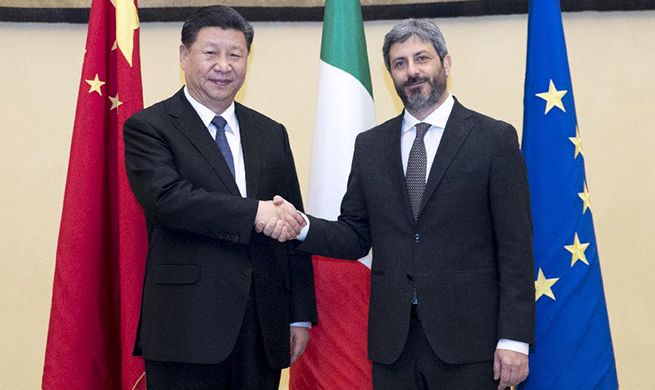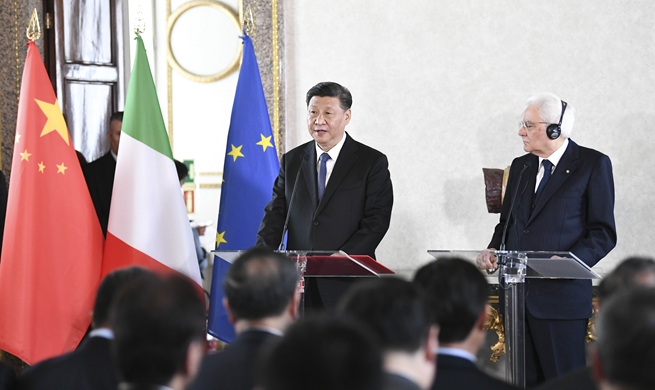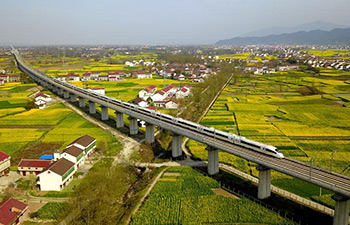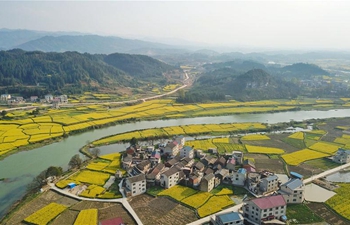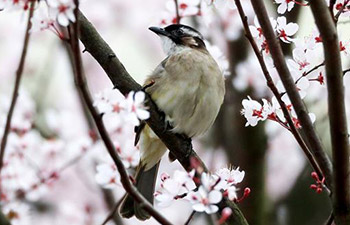DAR ES SALAAM, March 23 (Xinhua) -- Walking in the corridors of the Muhimbili National Hospital (MNH), Tanzania's biggest referral medical facility and its affiliate Jakaya Kikwete Cardiac Institute (JKCI), one would come across Chinese doctors wearing surgical gowns.
Indeed, the presence of the Chinese medical workers sent by the Chinese government is a common feature at the MNH and the JKCI, thanks to the long history of health cooperation between Tanzania and China.
The current Chinese medical team in the east African nation, which started work in June 2018, comprises 11 medical doctors, with seven of them working at the MNH and four deployed at the Mbeya referral hospital in the southern highlands of the country.
"Members of the Chinese medical team in the two hospitals are specialists in cardiology, neurosurgery, pediatric surgery, intensive care unit, orthopedic and anesthesia," says Qin Chengwei, head of the Chinese medical team, who is an anesthesiologist.
"I work for between eight and 12 hours a day here at Muhimbili doing preoperative care of patients before, during and after surgery at the pediatric theater, the obstetric theater and the emergency theater," Qin told Xinhua in an interview at the hospital.
The Chinese anesthesiologist says the MNH has three local anesthesiologists, two Cubans and himself, doing preoperative care at the hospital's eight theaters that perform 30 surgeries everyday from Monday to Saturday.
He said he enjoys working at the MNH where the working environment is very friendly and "patients are very respectful to the medical personnel."
However, Qin said one of the challenges he is facing when he receives referral patients from across the country is that most of their diseases, including tumor, are in the last stages.
"The risk is much higher doing anesthesia in such patients," he said.
The anesthesiologist said the Chinese medical team is also involved in offering medical services twice a year to rural clinics in different Tanzanian regions.
Hu Bin, a cardiac surgeon at the JKCI, said he performs one cardiac surgery per working day in collaboration with local surgeons.
"I deal with adult cardiac diseases such as all kinds of valve degenerative and myxomatous. Briefly, I am dealing with heart valve replacement and coronary artery bypass graft," said the cardiac surgeon.
He said the JKCI is really a model of cooperation among countries in Tanzania, adding that every year there are more than 10 global surgeon teams that visit the JKCI to perform heart procedures that help local surgeons learn and improve their knowledge and skills.
Cui Jian, another cardiologist at the JKCI, works with the Coronary Care Unit monitoring heart patients. At the JKCI he is commonly known as Dr. Richard, his English name.
"I have been at the JKCI for nine months during which time I have treated 751 critical patients and I have done heart procedures for 122 patients," said the cardiologist with 20 years of experience.
"Doctor Cui is one of my doctors who have saved my life. He is treating me well and I hope to recover very soon," Makame, a resident of the country's Zanzibar archipelago, who suffers from heart ailments, told Xinhua at his bedside.
Mariam Mtaula, a mother of a young boy with a congenital heart defect, said that Chinese doctor has saved the life of her 8-year-old boy.
"My son has started going to school now after undergoing medical treatment by the Chinese doctor," added the mother.
Mohamed Janabi, JKCI Executive Director and a renowned cardiologist, said the contribution of the Chinese medical team to the institute was immeasurable.
"Tanzania is benefitting a lot through the presence of the Chinese medical teams. First, China is very much advanced when it comes to medical treatment," Janabi told Xinhua in a telephone interview.
"Tanzanian doctors are learning new medical techniques introduced by the Chinese medical teams, especially in the treatment of heart diseases."
"In fact the Chinese medical teams are also training our local doctor. We don't have to send our doctors abroad because the training done by the Chinese doctors covers almost everything," Janabi added.
Janabi said unlike in Western countries where medical expenses are very high, the medical treatment introduced by Chinese doctors is affordable to most of the people.
Ummy Mwalimu, the minister for Health, said the Chinese medical team has been at the frontline in providing specialist medical treatment in collaboration with Tanzanian doctors.
"The Chinese medical team is working closely with our local doctors, imparting to them their medical expertise and skills," said the minister.
Mwalimu praises the Chinese medical team for their dedication in saving Tanzanian citizens' lives.
"I would like to express my sincere gratitude for the commendable services these doctors have been providing to the citizens," Mwalimu said.
According to the Chinese Ambassador to Tanzania Wang Ke, medical and health cooperation between China and Tanzania began in 1964 and 1968, when the Chinese government started sending medical teams to the African country.
"For 50 years, being fearless of difficulties and having overcome many obstacles, Chinese medical teams have treated over 300,000 Tanzanian patients with their diligent work and exquisite skill," says Wang.

